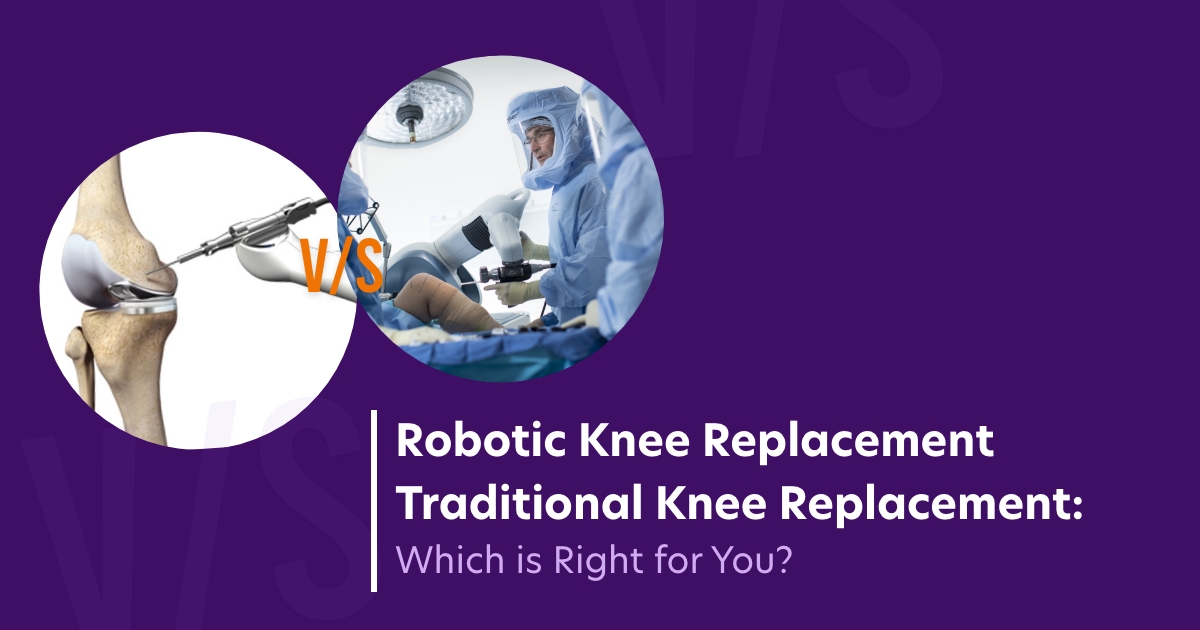
Robotic Knee Replacement vs. Traditional Knee Replacement: Which is Right for You?
Knee replacement surgery has long been a popular and effective treatment for individuals suffering from chronic knee pain and limited mobility caused by conditions such as osteoarthritis. In recent years, advancements in medical technology have introduced a new option: robotic knee replacement. This innovative approach combines the precision of robotics with the expertise of the surgeon, offering potential benefits over traditional knee replacement surgery. In this article, we will delve into the key differences between robotic knee replacement and traditional knee replacement, providing medically sound information to help you understand which option may be right for you.
Traditional Knee Replacement:
Traditional knee replacement surgery, also known as manual knee replacement, has been the standard method for decades. During this procedure, the surgeon makes an incision and manually removes the damaged or diseased parts of the knee joint. The removed surfaces are then replaced with artificial components, typically made of metal and plastic, to restore function and alleviate pain. While traditional knee replacement surgery has a high success rate, there may be certain limitations in comparison to a Robotic Surgery.
Robotic Knee Replacement:
Robotic knee replacement surgery represents a significant advancement in the field of orthopaedics. It combines the skill of the surgeon with the accuracy and precision of robotic technology. Here are some key features and potential advantages of robotic knee replacement:
Preoperative Planning:
Robotic knee replacement starts with a detailed preoperative planning process. Using specialised software and imaging techniques like CT scans, the surgeon can create a virtual 3D model of the patient's knee. This allows for precise measurements, analysis of joint mechanics, and individualised surgical planning based on the patient's unique anatomy.Intraoperative Assistance:
During robotic knee replacement surgery, the surgeon employs a robotic arm guided by a computer system. The robot assists the surgeon in executing the pre-planned surgical technique, ensuring precise bone preparation and accurate placement of the implant components. The system provides real-time feedback, allowing the surgeon to make necessary adjustments and optimise the surgical outcome.Enhanced Accuracy:
Robotic systems utilise advanced imaging and navigation technologies to guide the surgeon's movements. The robotic arm can make highly precise cuts, helping to minimise errors in bone preparation and implant placement. This increased accuracy may lead to improved alignment, reduced complications, and potentially longer-lasting implants.Customization:
Robotic knee replacement enables a higher degree of customization. The system adapts to the patient's unique anatomy, assisting the surgeon in selecting the appropriate implant size, position, and alignment based on preoperative planning. This individualised approach may contribute to better functional outcomes and patient satisfaction.
Choosing the Right Option:
Deciding between robotic knee replacement and traditional knee replacement is a complex decision that should be made in consultation with your orthopaedic surgeon. Several factors may influence the choice, including your specific condition, medical history, lifestyle, and the expertise and resources available at your surgical centre. It is essential to have an open and thorough discussion with your surgeon to determine the best course of action.
It is worth noting that not all patients may be suitable candidates for robotic knee replacement. Individuals with complex anatomical deformities or extensive previous surgeries may require the expertise of a skilled surgeon experienced in traditional knee replacement techniques. Additionally, the availability and cost of robotic systems may vary depending on your location and healthcare provider.
In conclusion, robotic knee replacement surgery offers potential advantages over traditional knee replacement in terms of precision, accuracy, and customization. However, the decision ultimately depends on your individual circumstances and should be made in collaboration with your orthopaedic surgeon. By discussing the options thoroughly and considering the benefits and limitations of each approach, you can make an informed choice that aligns with your specific needs and goals for a successful knee replacement surgery.